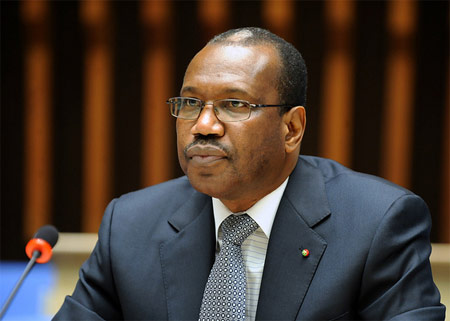 Excellencies, Excellencies,
Commissioners,
Ladies and gentlemen,
We now turn to the subject of cross-cutting issues.
This is an enormous field to be covered in just half an hour, so I will try to be very brief in my introduction.
In a globally-interconnected world, there is of course no such thing as any sector which acts alone, or which is unaffected by whatever is going on in the world around it.
Healthcare is no exception, and there are many cross-cutting issues affecting us, and in particular the work of this Commission.
I hope that we will have time over the coming weeks to take into consideration cross-cutting issues such as those raised in the working group on Results: human rights, equity, sustainability, and opportunities for innovation. Added to that list would be management, governance, judicious use of resources, and capacity building; and other issues that may have a disproportionately adverse effect on women and children.
Today, however, let me kick off our discussion to the field which I know best: ICTs.
I think we all understand that we are absolutely dependent on the availability of accurate and reliable information. Without this, we cannot even begin to deliver the improvements we seek in the health of women and children.
This is why the strategic use of ICTs to support information management and accountability is already at the heart of WHO’s work.
While ICTs were generally relatively quickly adopted by sectors such as government, commerce, banking and education, however, healthcare has come relatively late to the table.
ICTs will also play a crucial role in the work of this Commission, as I said earlier, in helping us to measure and monitor progress, and thereby deliver the accountability we seek.
Mobile technology is particularly important in this regard, allowing us to collect data directly from individuals; monitor health at a distance; and deliver timely and important health messages to people wherever they are.
We ourselves are actively engaged on a number of important projects, generally in cooperation with other agencies as well as the private sector. We have provided background documents which highlight our activities.
ITU and WHO are joining forces in facilitating national e-health planning, bringing together the health, ICT and finance sectors to collaborate in developing a toolkit, to guide national decision makers.
Many of you may also be aware that I also co-chair – together with Professor Klaus Leisinger from Novartis – the Advisory Board of the Digital Health Initiative.
The DHI is a perfect example of public private partnerships which aims to harness the full potential of ICTs and digital user devices to accelerate the achievement of the MDGs for health – goals which I am sure you will agree are perfectly in line with the ambitions of this Commission.
A key issue that could be discussed by the Commission in the coming weeks is public private partnerships. The opportunities here are extraordinary! I suggest that the group consider this and the associated business models while ensuring that both sides (public and private) have a complete understanding of the other parties needs. It is time to move from pilot projects to scalable sustainable initiatives. This is where we can make a difference.
Thank you.
|